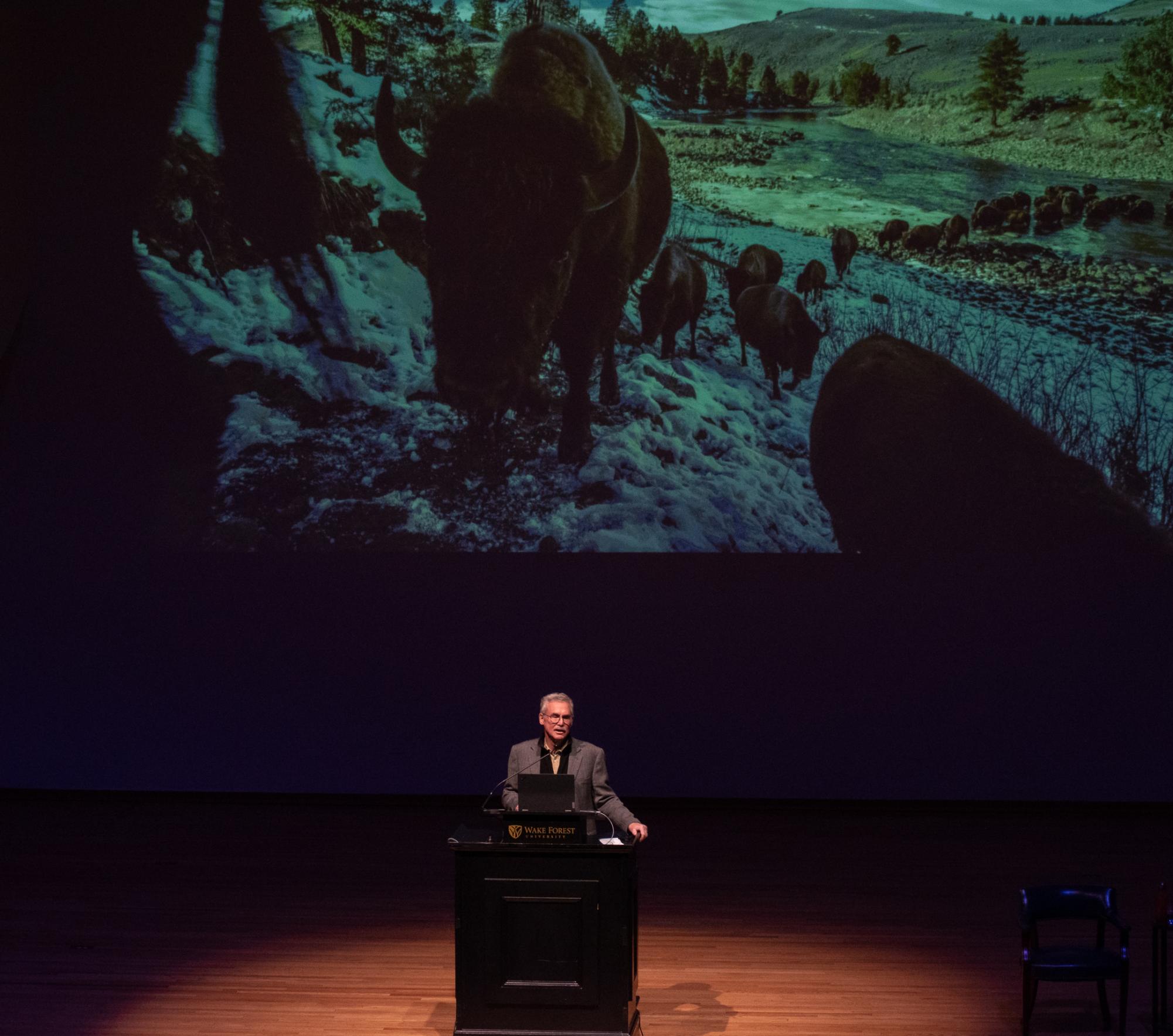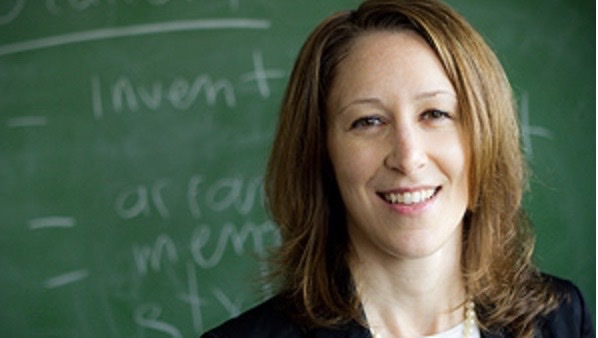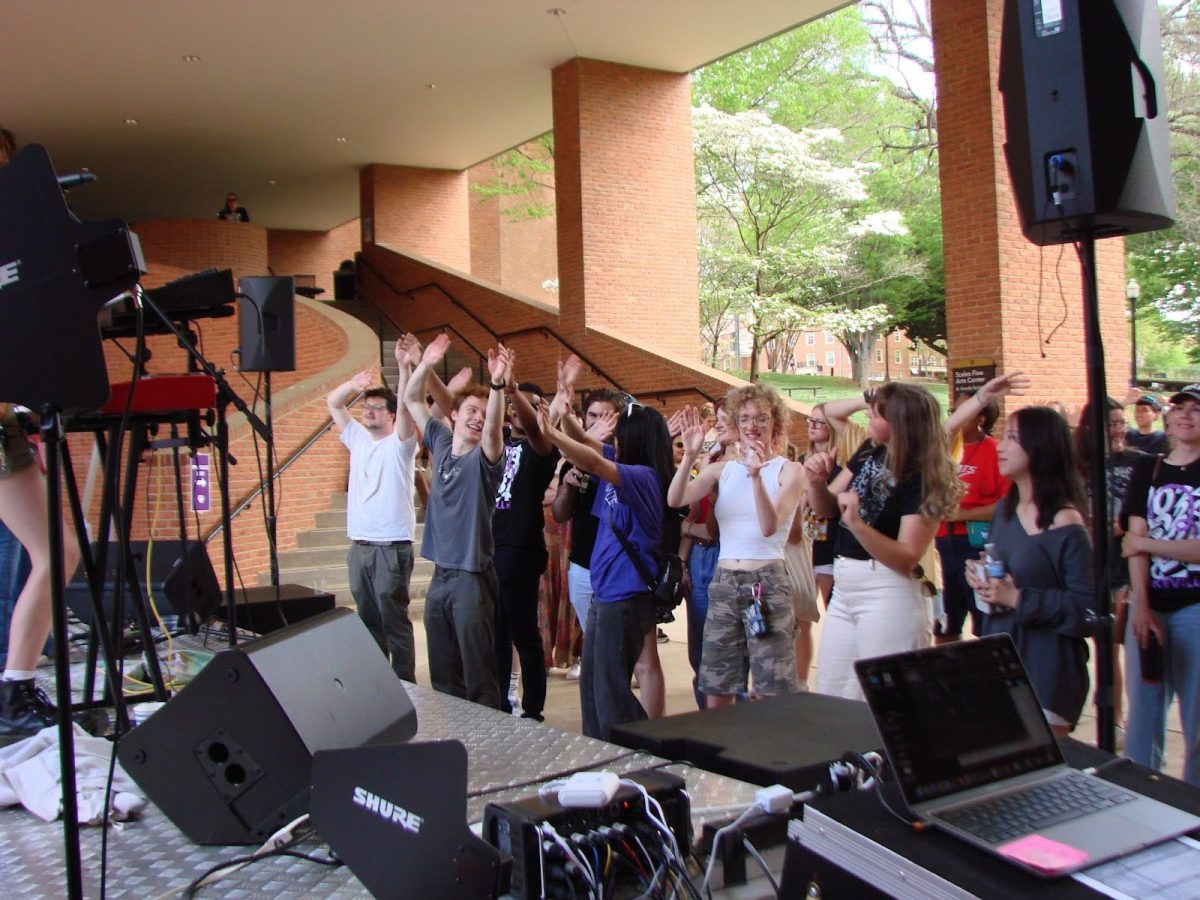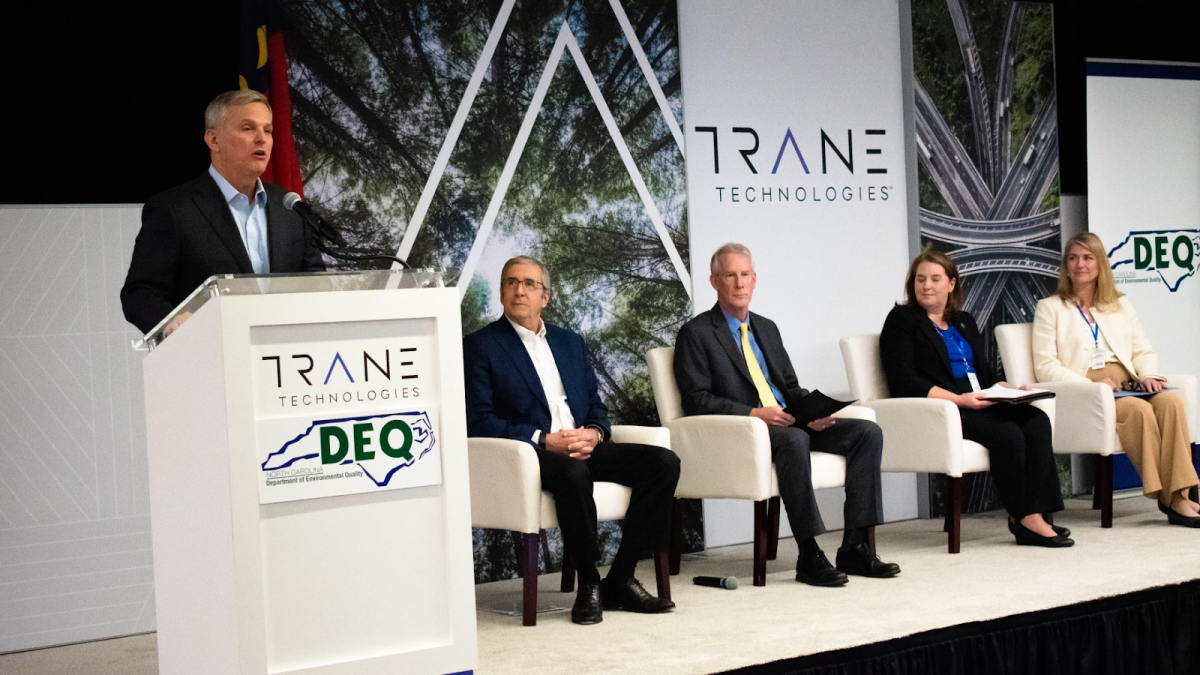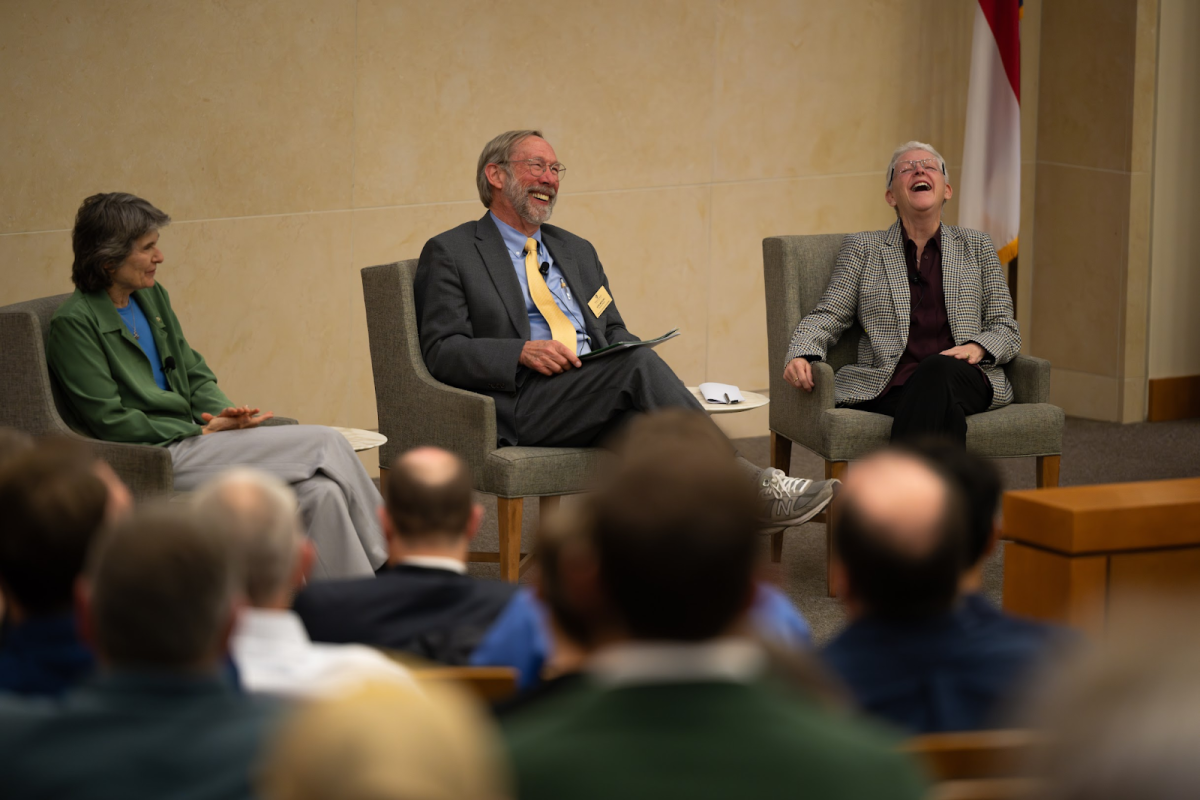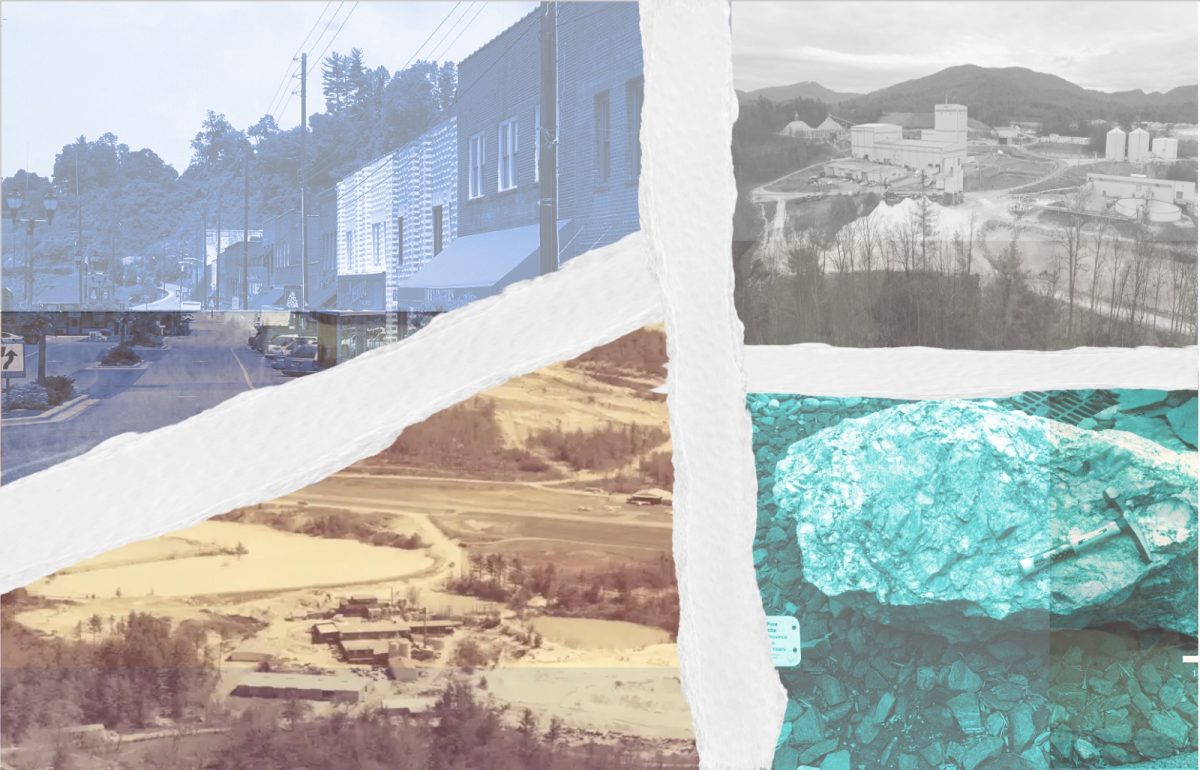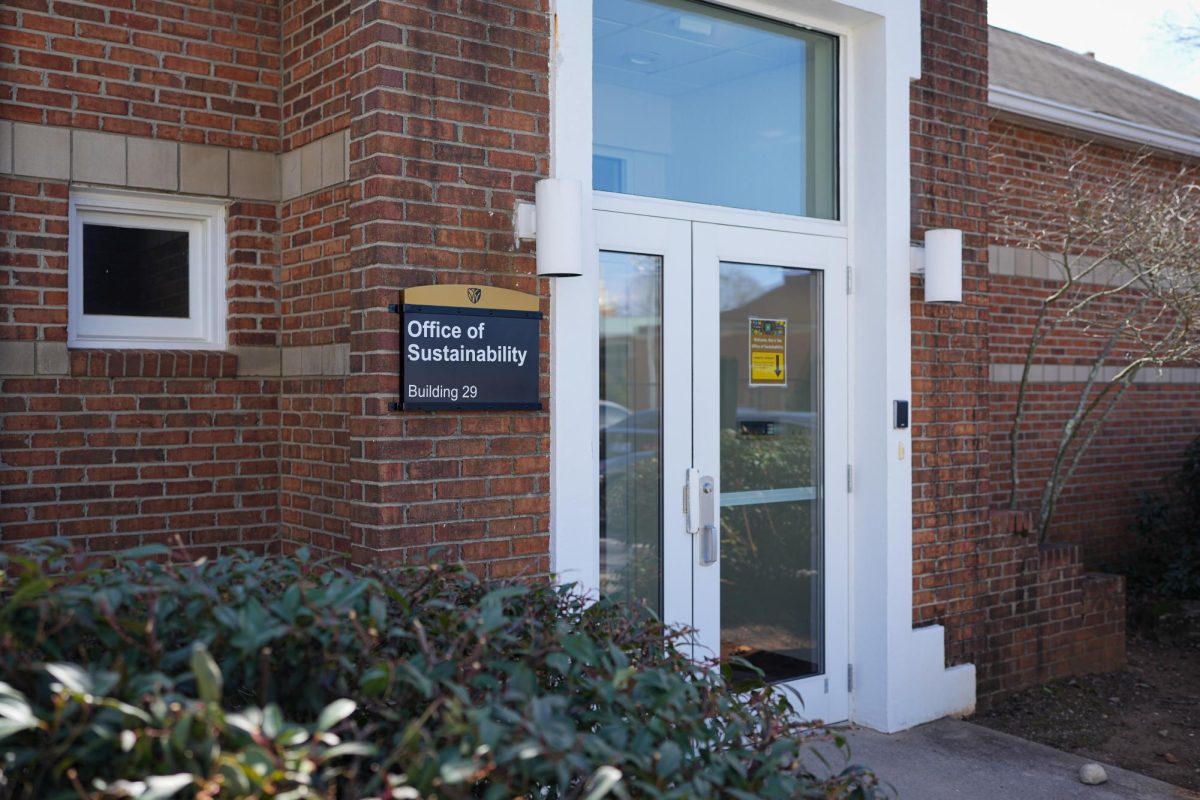David Quammen is a former novelist and journalist, turned prolific science writer. Quammen hails from Ohio and completed his education at Yale and Oxford, publishing his first novel immediately after graduating. He then moved to Montana, where he transitioned from a fiction writer to a columnist with Outside Magazine, a position he held for 15 years. During this time, he started his work as a non-fiction science writer. The Old Gold & Black had the opportunity to sit down and speak with Quammen during his visit as the Office of Sustainability’s keynote speaker.
This interview has been edited for brevity and clarity.
Klein: I know you started as a fiction writer — does this help you convey harder-to-digest scientific information to a larger, widespread audience?
Quammen: I think so. The fact that I was a fiction writer, first a novelist, meant that I was interested in being a storyteller. And then I turned into a nonfiction writer, focusing on science. I realized that if you’re going to write about science, you should also tell stories about people, right? So you tell stories about scientists, the discoveries that they make, the problems they face, their challenges and the things that they discover. In the course of doing that, you can make [a story] palatable to general readers — including those who don’t think of themselves as science people, by saying, ‘Just relax. I’m just going to tell you a story about some interesting people.’
Klein: I think that’s super important. People matter. What made you specifically interested in scientific writing? Did you have one singular interest, or was it a lifelong curiosity?
Quammen: I was always interested in nature. And in writing, since about the age of 12. I was a little kid who wrote stories, poems, songs and skits, but I was also the kid who spent his Saturdays in the woods — walking in creeks, catching butterflies and bringing home snakes and turtles to live in my bedroom. So it was always those two things. And then I had some great teachers in English in high school — but I had okay teachers in science. So, I focused on that and turned in that direction.
I went to [Yale] University, which had a great English department. [There], I had another great teacher … who helped shape my life — so I came out of Yale wanting to be a novelist. If I had had different teachers, I might have come out of Cornell or the University of Virginia wanting to be a biologist.
I moved to Montana after graduate school. [Having] published one novel by that point, I was lucky in certain ways. Then I paid my dues. After the first book, I lived in Montana; I ran out of money, I waited tables, I tended bar and I worked as a fishing guide. But I was reading widely — more widely than I had had time to read when I was an English major or [a] graduate student in literature. I discovered how much I enjoyed nonfiction writing when it was artful. So I started doing that. It was natural for me to write some of my earliest nonfiction about nature, not so much about science, just about natural history.
Then I had this column at Outside magazine starting in 1981, [which lasted] for 15 years when once a month I had to produce a column on some aspect of science or nature. The more science I read, [the] more concerned [I got] about conservation and conservation biology as a science. That led me into becoming a nonfiction writer who specializes in the biological sciences.
Klein: That’s a great progression. Why did you choose Montana?
Quammen: [Before moving there], I had never been to the state of Montana. I finished a graduate degree at Oxford University in England. So I had been to these two big, fancy, Ivy-covered universities studying literature, [and] I wanted to live closer to the ground — which is the way I described it at the time. I wanted to go somewhere where I could ski, where I could fish, where I could walk in the woods and hike in the mountains. And I had heard that Montana was an interesting place, with rivers and snow in the mountains in September. I said, ‘That’s where I want to go.’
Klein: I just did a career workshop, and the only goal for my future I could think of was that I wanted to be a kayaking instructor in Montana before I died.
Quammen: Well, Ella, that’s a great idea.
Klein: Thank you — I think so. Did you know exactly what you wanted to do right out of college? And do you have any advice for those of us who do not?
Quammen: I’ll take the second part first. My advice to those who do not [know] is, first of all, don’t worry. Secondly, take a deep breath. Take your time. Third, yes, we all have to make a living, but think about what really interests you and follow your passions.
Some people might say, oh, Ella, being a kayak instructor in Montana? That’s impractical. You shouldn’t do that, you should get a serious job and start to put away savings. I would say no, no, you should do that.
Klein: I’ll tell my parents you said that.
Quammen: (Laughs) Then, the first part of the question … I knew for sure that I wanted to be a writer — I just didn’t know what kind. I thought I wanted to be a novelist because, when I got out of college, I’d already published a novel. I said, ‘Well, that was easy’ because I could get to be a novelist now and move to Montana. Then, I discovered how hard it was to make a living as a fiction writer and even to continue to be published [after] I wrote a second novel, and I wrote a third novel, and they weren’t any good. [Then] I lost my contacts with the publishing house.
When I published the first novel, I fell into a good story with good characters. I wrote a novel good enough to be published by a New York publisher.
And then I was just a guy who had been an English major, you know? I was a middle-class white male from a happy childhood in Ohio. What did I know? So I didn’t have a second strong story.
Over the 13 years between my first book and my second book, I figured out that I didn’t have more material to allow me to be a useful novelist. But, I was also very interested in the scientific world, the natural world and that I loved nonfiction writing — when it’s done well and when it’s done artfully.
I discovered that that’s what I wanted to do. Half of the problem was answered for me, [and] it took me 13 years to figure it out.


